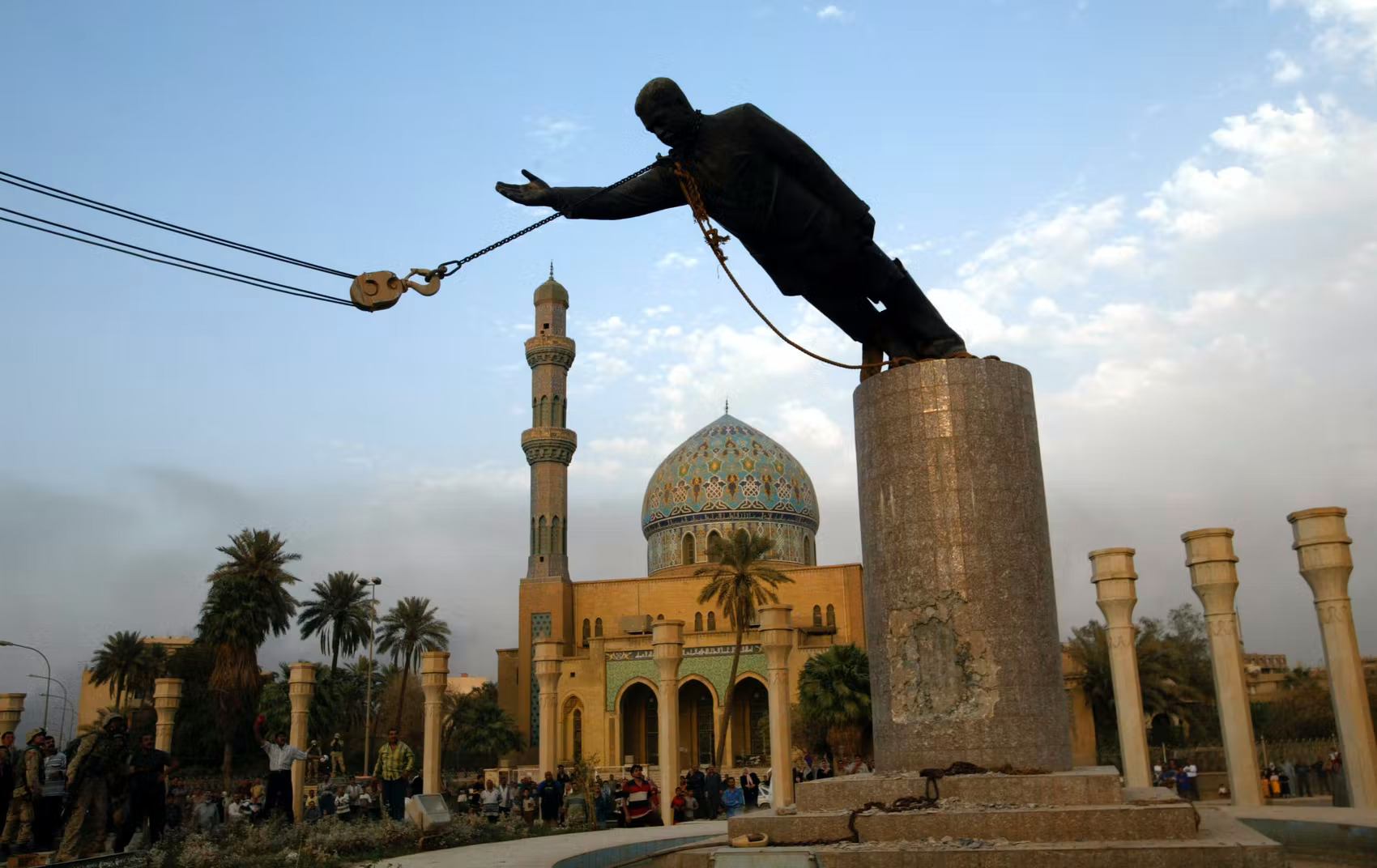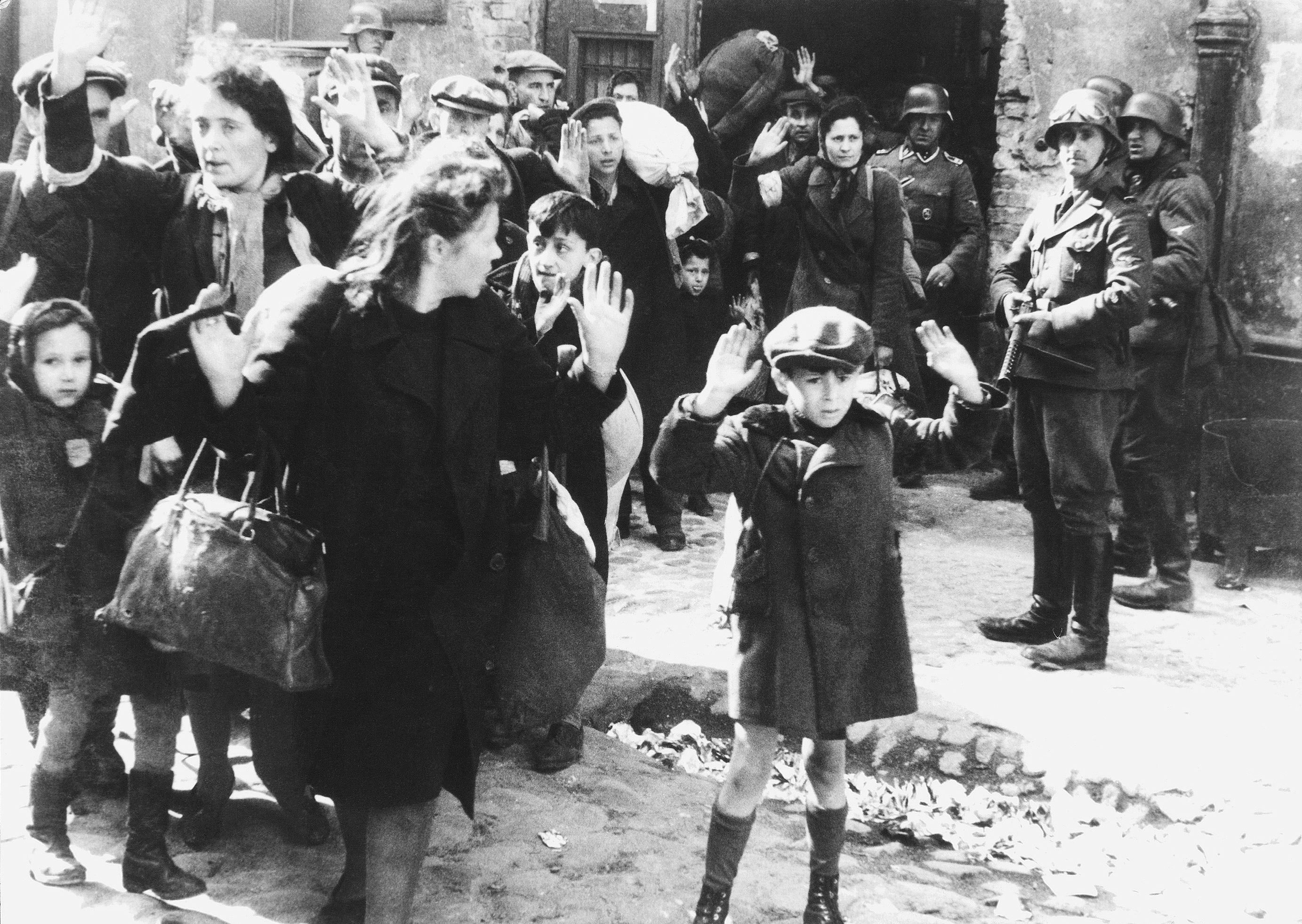|
Iraqi High Tribunal
The Iraqi High Tribunal (IHT), formerly the Iraqi Special Tribunal and sometimes referred to as the Supreme Iraqi Criminal Tribunal, is a body established under Iraqi national law to try Iraqi nationals or residents accused of genocide, crimes against humanity, war crimes or other serious crimes committed between 1968 and 2003. It organized the trial of Saddam Hussein and other members of his Ba'ath Party regime. The court was set up by a specific statute issued under the Coalition Provisional Authority and was reaffirmed under the jurisdiction of the Iraqi Interim Government. In 2005 it was renamed after the constitution established that "Special or exceptional courts may not be established." The Transitional Administrative Law (TAL) promulgated by the Iraq Governing Council before the restoration of Iraqi sovereignty preserved and continued the Iraq Special Tribunal Statute in force and effect. The court was responsible for the trial of Saddam Hussein, Ali Hassan al-Majid (a ... [...More Info...] [...Related Items...] OR: [Wikipedia] [Google] [Baidu] |
Genocide
Genocide is violence that targets individuals because of their membership of a group and aims at the destruction of a people. Raphael Lemkin, who first coined the term, defined genocide as "the destruction of a nation or of an ethnic group" by means such as "the disintegration of [its] political and social institutions, of [its] cultural genocide, culture, linguicide, language, national feelings, religious persecution, religion, and [its] economic existence". During the struggle to ratify the Genocide Convention, powerful countries restricted Lemkin's definition to exclude their own actions from being classified as genocide, ultimately limiting it to any of five "acts committed with intent to destroy, in whole or in part, a national, ethnical, racial or religious group". While there are many scholarly Genocide definitions, definitions of genocide, almost all international bodies of law officially adjudicate the crime of genocide pursuant to the Genocide Convention. Genocide has ... [...More Info...] [...Related Items...] OR: [Wikipedia] [Google] [Baidu] |
De-Ba'athification
De-Ba'athification () refers to a policy undertaken in Iraq by the Coalition Provisional Authority (CPA) and subsequent Iraqi governments to remove the Ba'ath Party's influence in the new Iraqi political system after the U.S.-led invasion in 2003. It was considered by the CPA to be Ba'athist Iraq's equivalent to Nazi Germany's denazification after World War II. It was first outlined in CPA Order 1 which entered into force on 16 May 2003. The order declared that all public sector employees affiliated with the Ba'ath Party were to be removed from their positions and to be banned from any future employment in the public sector. The policy was highly controversial among many American academics, institutions, government, military, and international media and debate outlets. The policy under the CPA was officially rescinded on 28 June 2004 as part of the transfer of sovereignty to the Iraqi Interim Government two days later. However, elements of the policy continued under ... [...More Info...] [...Related Items...] OR: [Wikipedia] [Google] [Baidu] |
Dujail
Dujail (; alternate spelling: Ad Dujayl) is a town in Saladin Governorate, Iraq. It is about north of Baghdad. It was the site of the 1982 Dujail Massacre, in which between 142 and 148 people, including children, died. A little-known massacre at a village where residents tried to assassinate Saddam Hussein in 1982 will be the focus of the first case in the trial of the former Iraqi president. ('' The Guardian
''The Guardian'' is a British daily newspaper. It was founded in Manchester in 1821 as ''The Manchester Guardian'' and changed its name in 1959, followed by a move to London. Along with its sister paper, '' ...
[...More Info...] [...Related Items...] OR: [Wikipedia] [Google] [Baidu] |
International Court
International courts are formed by treaties between Nation, nations, or by an international organization such as the United Nations – and include ''ad hoc'' tribunals and permanent institutions but exclude any courts arising purely under national authority. Definition An international court is an international organization, or a body of an international organization, that hears cases in which one party may be a state or international organization (or body thereof), and which is composed of independent judges who follow predetermined rules of procedure to issue binding decisions on the basis of international law. History Early examples of international courts include the International Military Tribunal, Nuremberg and International Military Tribunal for the Far East, Tokyo tribunals established in the aftermath of World War II. Several such international courts are presently located in The Hague in the Netherlands, most importantly the International Court of Justice (ICJ), and ... [...More Info...] [...Related Items...] OR: [Wikipedia] [Google] [Baidu] |
Public Trial
Public trial or open trial is a trial (law), trial that is open to the public, as opposed to a secret trial. It should not be confused with a show trial. United States The Sixth Amendment to the United States Constitution establishes the right of the accused to a public trial. The right to a public trial is strictly enforced, but is not absolute. Trials may in exceptional cases be regulated. Closures are decided case-by-case by the judge evaluating a claimed danger to a substantial or legitimate public interest. But whatever the interest at stake, the likelihood of danger to that interest must meet a substantial probability' test". Examples of cases presenting closure issues include organized crime cases (overall security concerns), rape cases (decency concerns), Minor (law), juvenile cases,Overview of the Sixth Amend ... [...More Info...] [...Related Items...] OR: [Wikipedia] [Google] [Baidu] |
Ahmed Hassan Al-Bakr
Field Marshal Ahmed Hassan al-Bakr (1 July 1914 – 4 October 1982) was an Iraqi politician who served as the fourth president of Iraq, from 17 July 1968 to 15 July 1979. He was a leading member of the revolutionary Arab Socialist Ba'ath Party and later the Baghdad-based Ba'ath Party and its regional organisation Ba'ath Party – Iraq Region (the Ba'ath Party's Iraqi branch), which espoused Ba'athism, a mix of Arab nationalism and Arab socialism. Al-Bakr first rose to prominence after the 14 July Revolution, which overthrew the monarchy. In the newly established government, he was involved in improving Iraqi–Soviet relations. In 1959 al-Bakr was forced to resign from the Iraqi military; the then Iraqi government accused him of anti-government activities. Following his forced retirement, he became the chairman of the Ba'ath Party's Iraqi branch's Military Bureau. Through this office he recruited members to the Ba'athist cause through patronage and cronyism. Prime Minister ... [...More Info...] [...Related Items...] OR: [Wikipedia] [Google] [Baidu] |
Arab
Arabs (, , ; , , ) are an ethnic group mainly inhabiting the Arab world in West Asia and North Africa. A significant Arab diaspora is present in various parts of the world. Arabs have been in the Fertile Crescent for thousands of years. In the 9th century BCE, the Assyrians made written references to Arabs as inhabitants of the Levant, Mesopotamia, and Arabia. Throughout the Ancient Near East, Arabs established influential civilizations starting from 3000 BCE onwards, such as Dilmun, Gerrha, and Magan (civilization), Magan, playing a vital role in trade between Mesopotamia, and the History of the Mediterranean region, Mediterranean. Other prominent tribes include Midian, ʿĀd, and Thamud mentioned in the Hebrew Bible, Bible and Quran. Later, in 900 BCE, the Qedarites enjoyed close relations with the nearby Canaan#Canaanites, Canaanite and Aramaeans, Aramaean states, and their territory extended from Lower Egypt to the Southern Levant. From 1200 BCE to 110 BCE, powerful ... [...More Info...] [...Related Items...] OR: [Wikipedia] [Google] [Baidu] |
Judiciary
The judiciary (also known as the judicial system, judicature, judicial branch, judiciative branch, and court or judiciary system) is the system of courts that adjudicates legal disputes/disagreements and interprets, defends, and applies the law in legal cases. Meaning The judiciary is the system of courts that interprets, defends, and applies the law in the name of the state. The judiciary can also be thought of as the mechanism for the resolution of disputes. Under the doctrine of the separation of powers, the judiciary generally does not make statutory law (which is the responsibility of the legislature) or enforce law (which is the responsibility of the executive), but rather interprets, defends, and applies the law to the facts of each case. However, in some countries the judiciary does make common law. In many jurisdictions the judicial branch has the power to change laws through the process of judicial review. Courts with judicial review power may annul the laws ... [...More Info...] [...Related Items...] OR: [Wikipedia] [Google] [Baidu] |
War Crimes
A war crime is a violation of the laws of war that gives rise to individual criminal responsibility for actions by combatants in action, such as intentionally killing civilians or intentionally killing prisoners of war, torture, taking hostages, unnecessarily destroying civilian property, deception by perfidy, wartime sexual violence, pillaging, and for any individual that is part of the command structure who orders any attempt to committing mass killings (including genocide or ethnic cleansing), the granting of no quarter despite surrender, the conscription of children in the military, and flouting the legal distinctions of proportionality and military necessity. The formal concept of war crimes emerged from the codification of the customary international law that applied to warfare between sovereign states, such as the Lieber Code (1863) of the Union Army in the American Civil War and the Hague Conventions of 1899 and 1907 for international war. In the afterm ... [...More Info...] [...Related Items...] OR: [Wikipedia] [Google] [Baidu] |
Crimes Against Humanity
Crimes against humanity are certain serious crimes committed as part of a large-scale attack against civilians. Unlike war crimes, crimes against humanity can be committed during both peace and war and against a state's own nationals as well as foreign nationals.Margaret M. DeGuzma"Crimes Against Humanity"''Research Handbook on International Criminal Law'', Bartram S. Brown, ed., Edgar Elgar Publishing, 2011. Together with war crimes, genocide, and the crime of aggression, crimes against humanity are one of the core crimes of international criminal law and, like other crimes against international law, have no temporal or jurisdictional limitations on prosecution (where universal jurisdiction is recognized). The first prosecution for crimes against humanity took place during the Nuremberg trials against defeated leaders of Nazi Germany. Crimes against humanity have been prosecuted by other international courts (such as the International Criminal Tribunal for the former Yugosl ... [...More Info...] [...Related Items...] OR: [Wikipedia] [Google] [Baidu] |
Genocide
Genocide is violence that targets individuals because of their membership of a group and aims at the destruction of a people. Raphael Lemkin, who first coined the term, defined genocide as "the destruction of a nation or of an ethnic group" by means such as "the disintegration of [its] political and social institutions, of [its] cultural genocide, culture, linguicide, language, national feelings, religious persecution, religion, and [its] economic existence". During the struggle to ratify the Genocide Convention, powerful countries restricted Lemkin's definition to exclude their own actions from being classified as genocide, ultimately limiting it to any of five "acts committed with intent to destroy, in whole or in part, a national, ethnical, racial or religious group". While there are many scholarly Genocide definitions, definitions of genocide, almost all international bodies of law officially adjudicate the crime of genocide pursuant to the Genocide Convention. Genocide has ... [...More Info...] [...Related Items...] OR: [Wikipedia] [Google] [Baidu] |







